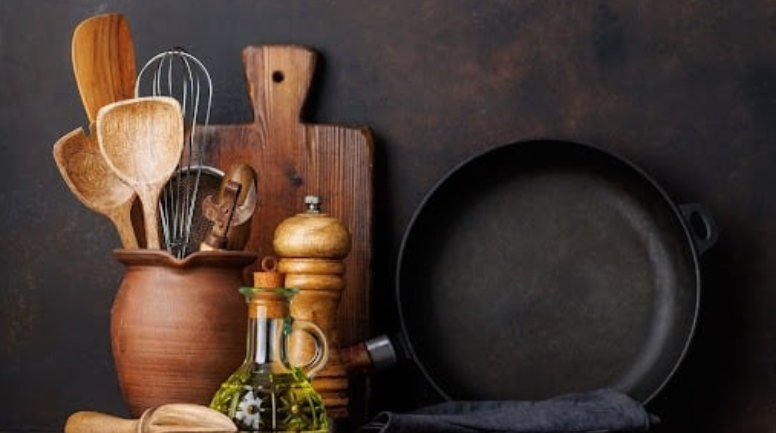There’s a whole world of flavors waiting to be explored, right in your kitchen. As a seasoned home chef, I’ve spent years perfecting my culinary techniques and discovering the essentials that every kitchen should have. Whether you’re a beginner looking to whip up your first dish, or an experienced cook wanting to elevate your meals, understanding the culinary essentials can transform your cooking experience.
Kitchen Tools Every Chef Needs
Having covered the relevance of flavors in the culinary landscape, let’s shift our focus to tools. A well-equipped kitchen is a haven for any chef, and certain tools do carry more importance than others. Here’s my pick of the top four gear you’ll find in any professional kitchen.
1. Chef’s Knife: If I could pick only one kitchen tool, it’d be the chef’s knife. Its versatility places it first on my list. Whether you’re slicing, dicing, or chopping, a sharp chef’s knife does it all. Choose your knife depending on your comfort and gripping style. Ensure professional chefs usually prefer 8-10 inch knives.
2. Cutting Board: Your knife’s partner, the cutting board, ranks second. Opt for a large, sturdy board that provides adequate space for cutting and can withstand the sharp edges of your knives. Remember, bamboo and wood boards offer a great balance between durability and knife-friendliness.
3. Mixing Bowls: It’s easy to underestimate the importance of mixing bowls until you’re juggling several ingredients. A quality set of stainless steel mixing bowls, ranging in size, can function in multi-faceted roles, from prepping ingredients to whisking sauces, proving essential to any chef.
4. Measuring Cups and Spoons: Precision matters in cooking, and this makes measuring implements indispensable. Invest in a set of both dry and liquid measuring tools. Additionally, don’t forget the measuring spoons for those elusive ingredients that can make or break a dish.
Culinary essentials
Diving deep into the culinary field requires one to grasp certain critical components. I stress the importance of understanding basic cooking techniques, essential ingredients, and indispensable equipment. Let’s deconstruct these culinary essentials further.
Certain cooking techniques form the foundation for a wide variety of dishes. From grilling to braising, proficiency in these skills makes a world of difference for a home cook. I recommend mastering a basic set of techniques initially: sautéing, boiling, baking, grilling, roasting, and braising. For instance, grilling, often associated with outdoor barbecues, can add a smoky flavor to meats, fish, and even vegetables. Braising, on the other hand, allows you to transform tough cuts of meat into tender, flavorful dishes.
Just as a painter needs a diverse palette of colors, a cook needs an assortment of spices and ingredients to create exciting flavors. Staple ingredients form the backbone of most recipes: salt, pepper, oils (olive and vegetable), sugars (white and brown), all-purpose flour, rice, pasta, and canned tomatoes. However, staple ingredients aren’t enough on their own. Flavor enhancers like herbs (basil, rosemary), spices (cinnamon, paprika), and condiments (soy sauce, vinegar) can elevate simple recipes to new heights. Take basil, for example. It can add a hint of sweetness to a tomato-based pasta sauce, enhancing its overall profile.
Culinary Techniques to Master
So, we’ve journeyed through the world of culinary essentials, from exploring diverse flavors to mastering the art of grilling and braising. We’ve seen how crucial it is to have the right tools—like the trusty chef’s knife and measuring spoons—at our disposal. They’re not just tools, they’re the bridge between us and our culinary dreams. And let’s not forget the importance of quality ingredients. Herbs and spices aren’t just add-ons, they’re the soul of our dishes, lifting them from good to extraordinary. It’s clear that the path to culinary excellence isn’t a secret. It’s all about embracing the right techniques, tools, and ingredients. So, let’s put on our aprons, pick up our chef’s knife, and create culinary magic in our kitchens. Because with the right essentials, we’re not just cooks—we’re chefs.

